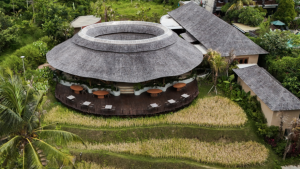Jeff Wilson, dubbed Professor Dumpster, spent a year living in a 33 square foot dumpster to determine how much a human really needs to be comfortable. Though an impractical dwelling, Wilson found there were a surprising number of perks: it could move anywhere; rent was low; commutes were short; and the local neighbourhood became an intimate living room. He took what he’d learnt to develop a solution to the attainability crisis affecting urban areas. Using breakthrough industrial design and smart technology, Wilson created the Kasita, a smart, moveable, 208 square foot home.
Designed using cutting-edge technology and a fully customisable tile design Kasita is a described as a new category of home. “The Kasita does not contain a loft, Murphy bed, pitched roof, or wheels. It’s designed from the ground up as opposed to an adaptation of an existing structure intended to store and transport merchandise (but we have lots of love and respect for our friends in the Tiny House and container communities!),” says the company.
Around 208 square feet with 10-foot ceilings, Kasita is designed to sport all of the essentials while offering light, spacious-feeling living areas. It comes fully equipped with a walk-in shower, refrigerator, and convection oven, dishwasher, washer/dryer combo, cooktop, and a queen-size bed that easily tucks away out of sight.
A single Kasita module can move from city to city on a big rig truck and the company plans to offer rent at half the price of market cost for a studio: “We have an innovative land and business model that makes affordability possible through partnerships in local communities.”
The Kasita home will be rolled out in Austin and Texas in 2016. The company plans to expand to other cities and internationally. Each unit is priced around $300 (Under R40 000).











